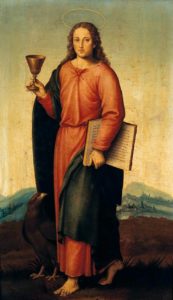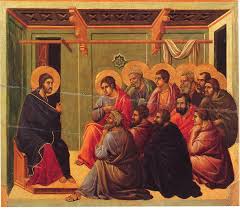The basis for The Great Commission is in the following scriptures: Matthew 28:16-20, Mark 16:14-18, Luke 24:44-49, John 20:19-23, and Acts 1:4-8. The scriptures contain the instruction Jesus Christ gave to his disciples between his resurrection and his ascension. The Great Commission forms the basis for worldwide Christian missionary work, and similar evangelical efforts determined to win new converts into Christianity. Since there is a great commission, a lesser commission must exist. Comparatively, the lesser commission refers to the sending of the disciples specifically to the Jews for evangelism when Jesus was physically present on earth (Matthew 10:5-42). The Great Commission is about evangelism, baptism, and spiritual power.
Faith comes by hearing the word of God, goes the popular adage (Romans 10:17). This famous scripture is the purpose of evangelism. Evangelism consists of a whole series of activities targeted at bringing the knowledge of the redeeming grace of Jesus to as many people as possible worldwide. Such work involves passing on the message of the goodwill of Jesus, called the gospel, to everyone. It is not the responsibility of only ordained ministers but all Christians (John 15:16). Hence, missionaries including diplomats, healthcare workers, cartographers, artists and other professionals who contribute to spreading the gospel without having to mount a pulpit to preach. Baptism of converts is the second ambit of the great commission. New converts are welcomed into membership through baptism, which is the outward confirmation of their new faith (Acts 19:2-6). Jesus and the apostles baptized many people as examples for this instruction.
However, this commission requires power. Jesus Christ empowered the disciples before sending them out on the lesser commission (Matthew 10:8). He also instructed them to wait in Jerusalem for the Holy Ghost before embarking on the Great Commission (Acts 1:4-8). Both commissions involve the exercise of supernatural powers of healing and defeating various forms of opposition and satanic attack (Mark 16:17-18). Hence, The Great Commission is Christ’s instruction to Christians to continue the business of winning converts from their evil ways into the kingdom of God, and sealing their new faith by the baptism with water.
Evangelists and the Great Commission
The term evangelist has different meanings to different people and it depends on the context that it is used. It may refer to an office, the holder of an office or a role played by a particular person. For example, in the Mormon Church and many Christian sects, the term refers to an office. However, in the present discussion of the Great Commission, we will be concerned with the role of the evangelist as a revivalist. The closest definition in this context will be their function as revivalists (dictionary.reference.com). To clarify, an evangelist in this role includes a preacher of the Christian gospel; an occasional preacher at open-air Christian meetings; and any zealous advocate for the cause of Christianity. Therefore, an evangelist is a revivalist who promotes or leads religious revivals to entrench customs of the Christian faith. They are front-line representatives of the church in new communities.
 Evangelists initiate evangelical campaigns in places where the church decides to extend the gospel by making new contacts and introducing the religion to the members of that community. They form an interface between the new community and the established church. Evangelists also coordinate the administrative functions between the new group and the home church. It is common to assume that the man on the pulpit is the only evangelist in the group. Less obvious support for evangelical work comes from accompanying missionaries with various responsibilities that may include healthcare services, administration of food and clothing and help with other similar social needs identified in the beneficiary community. The home church is also commonly supportive of administrative, marketing, and financial support for evangelical initiatives.
Evangelists initiate evangelical campaigns in places where the church decides to extend the gospel by making new contacts and introducing the religion to the members of that community. They form an interface between the new community and the established church. Evangelists also coordinate the administrative functions between the new group and the home church. It is common to assume that the man on the pulpit is the only evangelist in the group. Less obvious support for evangelical work comes from accompanying missionaries with various responsibilities that may include healthcare services, administration of food and clothing and help with other similar social needs identified in the beneficiary community. The home church is also commonly supportive of administrative, marketing, and financial support for evangelical initiatives.
Powerful Christians
Commonly, evangelists as front-line revivalists are Christians who have grown in the church over time. According to the scriptures, they rank between prophets and pastors (Ephesians 4:11). Their role as revivalists involves more than just eloquent speech as they mount the pulpit, but includes the exercise of spiritual power. Their ministry in the community that they serve includes spiritual healing of the sick members of that community, deliverance from various types of satanic oppression, prophecy, and authority to perform diverse miracles (Mark 16:15, Acts 10:38, II Corinthians 3:17). Essentially, evangelists are publishers of the good news of the gospel on behalf of the church by demonstrating some of the significant benefits to potential Christian converts.
The Great Commission is as evangelical call by Jesus for Christians to spread the gospel. Evangelists are members of evangelical campaigns who volunteer to spread the gospel, commonly on behalf of a church group. They preach, they interact with their new community, they demonstrate the power of God to the people in order to attract them to the benefits of the Christian faith. They also baptize the new converts or organize for their baptism by a recognized official of the church. This way they fulfill the purposes of the Great Commission by expanding the size of the kingdom of God through evangelism and increasing the numbers of self-confessing Christians (John 15:16). This is why evangelists are commonly associated with the Great Commission.






